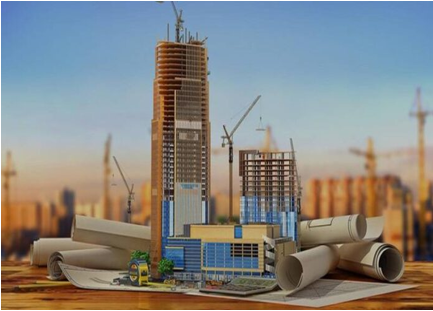INP-WealthPk
Ayesha Saba
Long-term tax reforms and faster approvals can boost investment in Pakistan’s construction sector, while public-private partnerships and smart policies are key to tackling the country’s housing and infrastructure challenges. Mohammed Hassan Bakshi, Chairman of the Association of Builders and Developers of Pakistan (ABAD), said this while talking with Wealth Pakistan. He said Pakistan’s construction and real estate sector stands at a critical juncture, pressured by a deepening housing crisis and economic instability, yet brimming with the opportunity for growth, innovation, and inclusive development.
Highlighting Pakistan’s housing deficit exceeding 10 million units, Bakshi noted that the crisis disproportionately affects low- and middle-income families, posing not only economic but also social challenges. He urged policymakers to treat housing as a national development priority, supported by clear and actionable reforms. He stressed that a stable and long-term tax policy is crucial for attracting both domestic and foreign investment. Frequent policy shifts and inconsistent tax regimes, he said, discourage investors and hinder project planning.
“Predictable and construction-friendly tax reforms such as reduced duties on raw materials and consistent fiscal measures can build investor confidence, stimulate economic activity, and strengthen allied industries,” Bakshi added. Calling for a one-window operation system, the ABAD chairman underscored the need to eliminate bureaucratic bottlenecks and accelerate project approvals. Complex approval procedures and overlapping departmental clearances, he said, create unnecessary delays and inflate costs.
A centralized, transparent mechanism would encourage investment, accelerate development, and help achieve the country’s housing and infrastructure goals. Additionally, a construction-friendly tax policy is essential to attract sustained investment. High and inconsistent taxation creates uncertainty and deters new projects. By offering targeted tax incentives, lowering duties on raw materials, and ensuring fiscal stability, the government can strengthen investor confidence, stimulate economic activity, generate employment, and advance national infrastructure development.
Bakshi further emphasized the need for public-private partnerships (PPPs) in driving infrastructure and housing development. “The public sector alone cannot meet Pakistan’s growing infrastructure demands. PPPs provide a strategic model where the private sector brings investment and efficiency, while the government ensures supportive policies, land provision, and guarantees,” he explained. Well-structured PPPs, he added, could mobilize billions in investment and catalyze large-scale urban transformation.
He concluded that Pakistan’s construction and real estate sector has immense potential to drive national development, but unlocking this potential requires policy consistency, sustainability, and collaboration between government and industry stakeholders. “With strategic reforms, inclusive planning, and modernization, the sector can become a powerful engine of economic resilience, building not just homes but a stronger, more prosperous Pakistan,” Bakshi remarked.

Credit: INP-WealthPk









